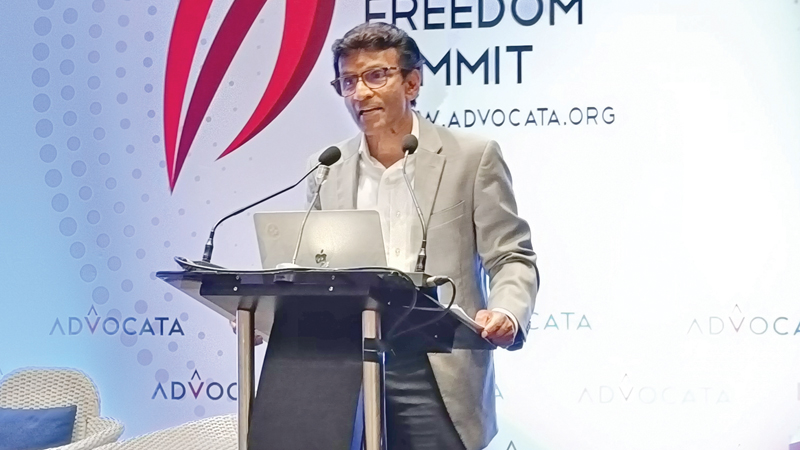Sri Lanka’s FDI net inflow as a percentage of the GDP has remained stagnant for over two decades and has not grown after the end of the conflict in 2009, said former head of the Board of Investment (BOI), Thilan Wijesinghe at the Advocata Institute organised special breakfast forum.
Sri Lanka has performed very poorly in attracting equity FDI in the past 10 years with the post-conflict average being significantly lower. “In the 10 years after the end of the conflict FDI net inflows declined to 1.1 % of GDP.”
Wijesinghe who is also the Chairman and CEO of TWCorp (Pvt) Ltd, said that during his time from 1995 to 2001 Net FDI inflows came to almost 2.8% of GDP per year.
In recognition of “Olympian Efforts of Investment Promotion Agencies in 1999”, BOI received the “runner-up” award for the Top National Investment Agency in Asia based on a ranking by Corporate Location magazine of UK. To date from 1978 this was the first and only occasion that the agency has been conferred an international award.
He said that 90% of FDI reported in Sri Lanka over the past 10 years has been debt and retained earnings reinvested. “Retained earnings improves forex retention as such earnings are not used to pay dividends. 53% of FDI reported is retained earnings reinvested by existing companies. Also 37% is foreign debt taken by foreign companies.”
Average manufacturing FDI (the tradable sector that generates export growth) has been only 24% of aggregate FDI.
Eliminating the Hambantota port divestiture as a one-off transaction in 2017 and 2018, the non-tradable sector FDI on average was around 60% of total FDI over the last 10 years. Hence FDI in the last 10 years has been poor from a foreign exchange generation perspective.
He said that the present BOI must rethink and re-focus their investment incentives with external specialists and in consultation with the Finance Ministry and IMF.
He also suggested introducing interim changes to the BOI Law (before overarching new law). “The BOI should also consider creating new types of Special Economic Zones (SEZ) for agri-business, logistics, and tourism (such as marinas and cruise terminals).
Strengthen research and processes for FTAs too is a priority as Vietnam has 13 as against Sri Lanka which only has 3 FTA’s while GSP+ too is expiring.
Lack of progress in improving Ease of Doing Business index for Sri Lanka and delays in obtaining lands and environmental approvals too drives away FDI’s.”
“Introducing anti-corruption provisions in all laws and digitising the investment approval process too should be a key focus to woo more FDI’s.”









